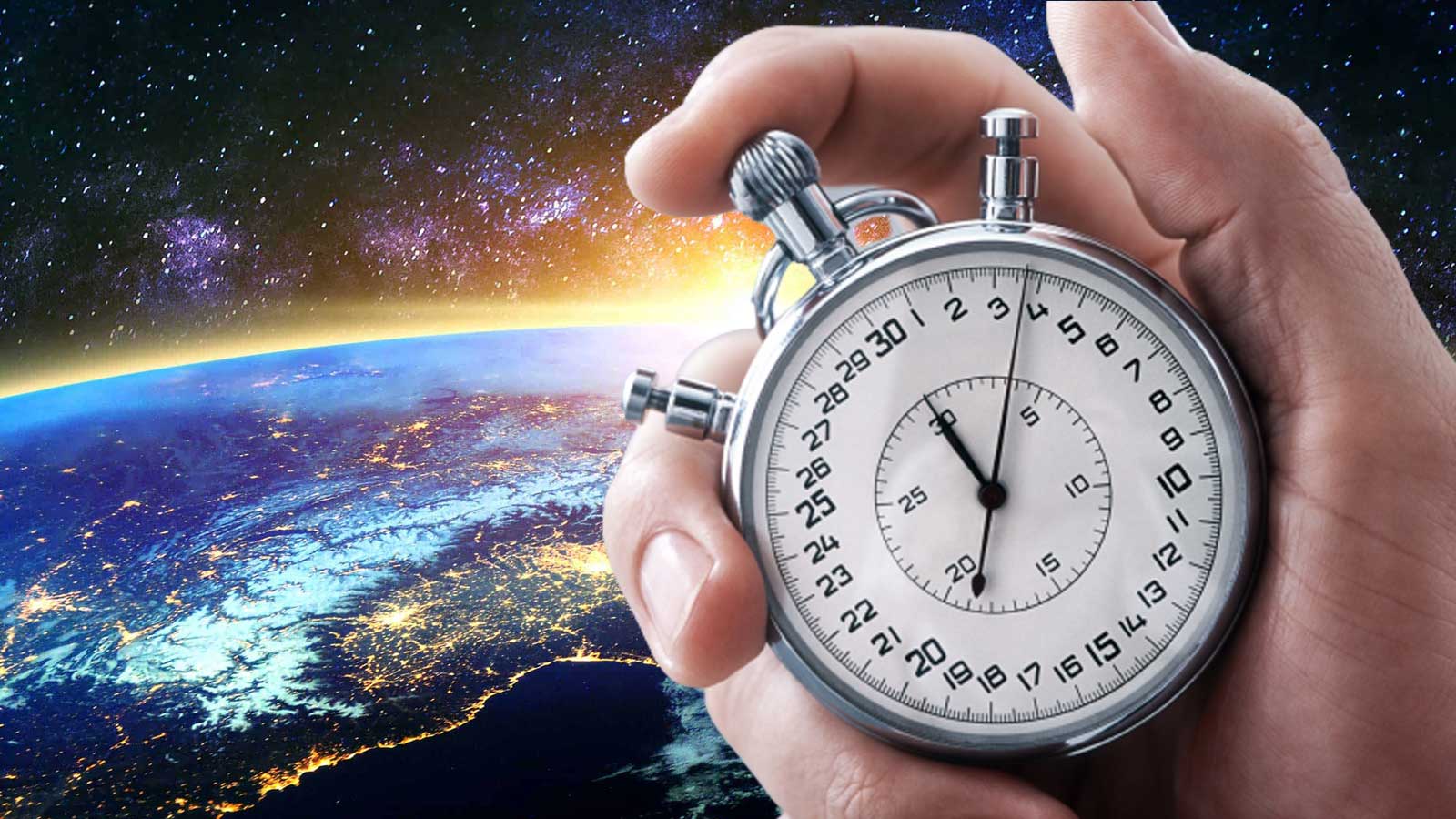Over the course of the last few years, Earth’s speed was gradually slowing down during its rotation on its axis. But it was the year 2020 where it suddenly sped up leading the scientists to subtract a few leap seconds.
Although we all are tiny dots in this colossal cosmic world of the universe, nevertheless the humankind is in its consistent pursuit of bringing out unknown truths and mysteries to make itself more acquainted with deeply buried and often perplexing puzzles of the solar system, galaxies, and our own planet Earth. Even after decades of research and analysis, it seems that the human brain is still far away from understanding these inquisitive mysteries.
Following that, a recently published report has gone onto claim that the Earth spun faster the last year. Now, it seems that even the Earth was as desperate to get rid of 2020 as we all were. Every year scientists and timekeepers add some additional seconds to the total time taken by the Earth in order to maintain the synchronisation between that of the Earth and the stars, the Moon and the Sun.
The earth has taken slightly more than 86,400 seconds to complete one rotation on its axis over the period of 50 years. Since the 1970s, timekeepers have added 27 leap seconds. Such leap seconds are added at the end of June or December. During the years 2012 and 2015, a leap second was added in June while in 2016, a leap second was added during New Year’s Eve.
Over the course of the last few years, Earth’s speed was gradually slowing down during its rotation on its axis. But it was in the year 2020 when it suddenly sped up leading the scientists to subtract a few leap seconds. For the first time, Earth’s rotation was completed in slightly less than 24 hours which made the scientists at International Earth Rotation and Reference System service go into a huddle whether they should add a negative leap second or not.
Furthermore, scientists have come to the conclusion that July 19, 2020, was the shortest day of 2020 for the whole year. In addition to it, they also claim that there were 28 other days that were also shortest ever in recent history so far, even surpassing the record set during the year 2005. While the researchers have said that they did not add a negative leap second on the eve of the new year on 31st December 2020, they might do the same on June 30th, 2021.
Moreover, UK-based scientists have also made astounding propositions that the Earth is now rotating faster than it did in the last 50 years. Scientists also point that such deviations in Earth’s rotation time might have been a consequence of the moon’s attraction, snowfall levels, mountain erosion, and global warming. The addition of a leap second also affects websites and the digital world drastically. As happened earlier in 2012 when after adding a leap second many websites including those of Reddit and Linkedin stopped functioning and confused many servers of various tech companies and firms.
Consequences of adding a negative leap second
As mentioned earlier, that these leap seconds will not be felt in reality if added or subtracted from a day’s duration but they can have a considerable impact on satellites, communication systems, computers which precisely work on the basis of synchronization of solar time. While they can impact the digital world, leap seconds can also lead to massive disruption in financial markets, stock exchanges, and those engaged with software-related works.
A similar incident happened on June 30, 2015, which impacted the functioning of the International Stock exchange which then subsequently went awry for 61 minutes. At the same time, it did disrupt the functioning of Netflix, Amazon Prime, Twitter, etc.
Why the Earth is rotating faster?
Various studies that were conducted in the last five to six years have attributed that due to global warming, the sea level on the Earth is rising – further making the planet rounder and hence it is spinning at a comparatively faster speed. Some researchers also point towards a massive earthquake that dismantles the Earth’s crust while bringing changes in its spinning speed.

